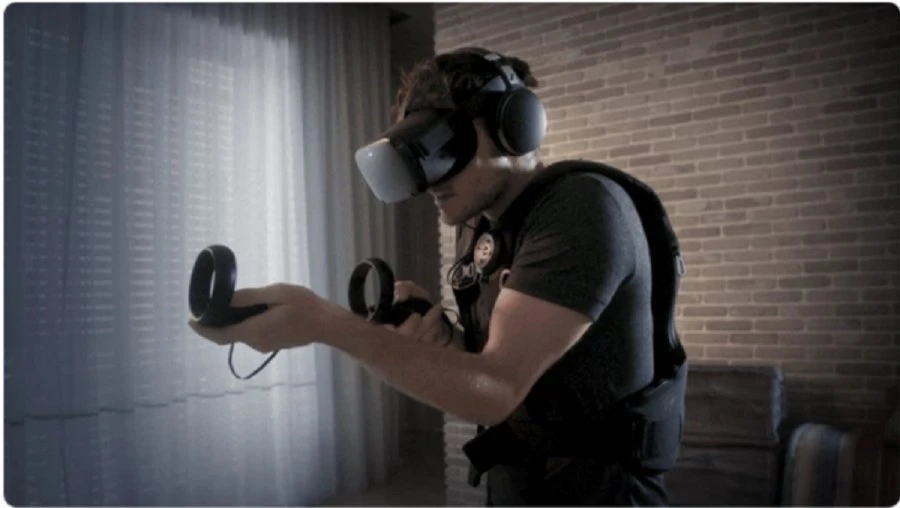Vest "Vest Woojer Edge" and strap "Strap Woojer Edge": novelties in the field of VR

Vest "Vest Woojer Edge" and strap "Strap Woojer Edge": novelties in the field of VR

The company Woojer is a pretty well-known manufacturer of haptic (tactile) devices in the VR field. The team is already not the first year on the market and started small: haptic belt, and a separate haptic units.
Last year, the developers have successfully released the vest with haptic feedback called Ryg. A crowdfunding campaign on Kickstarter for the past vest has received such strong support among the community that the purpose of the funding goal within the first three hours.
This week Woojer has launched a new campaign on Kickstarter to Fund and promote two new products: the vest "Vest Woojer Edge" belt "Strap Woojer Edge". Both devices can be used with VR headsets.

A new series Woojer Edge is an enhancement to the patented technology Osci to help improve the sense of immersion, regardless of whether you play in virtual reality or just listening to music. Two devices in a campaign designed for different purposes: Woojer Edge Vest for use at home and Woojer Strap Edgeдля use in nedomansky conditions ("route").
Woojer Vest Edge is a flagship device weighing 2 kg, suitable for people with a various Constitution. It is equipped with six silent haptic sensors Osci TRX52 arranged symmetrically (2 sides, 2 rear, 2 front). The vest contains a lithium-ion battery (3 350 mAh battery, 14.5 V), which can operate approximately 8 hours without recharging. The battery life depends on the power level, frequency and power haptic effects will be established by the user.

If you hurry, you can catch pre-order Edge Vest for $299 (offer "Early Bird" limited time). Thus, it is possible to save 40% compared to standard retail price of $499.
If Woojer Edge Vest is too bulky, you can take a more compact and tidy strap Woojer Strap Edge. The device is designed as a belt, and it can be worn anywhere and place in different places of the torso from the waist to the shoulder.
As Vest Edge Strap Edge comes with Bluetooth 5.0 with low latency and built-in CSR APTX analogue headphone amplifier Texas Instruments. With a weight of 240 g. Strap Edge feature one tactile sensor Osci TRX52 and battery capacity of 3350 mAh, 4.2 V. Thus, it is possible to spend much less money on tactile feedback as the program "Early Bird" with a limited validity period allows you to purchase the device for $ 99 instead of the standard retail prices of 175 dollars.

"We are very pleased to launch a series of Edge on Kickstarter," said CEO of Woojer Kfir Bar-Levav. "Our efforts made Edge to be as good as our previous products, but now available to all. We hope that, together with the Woojer Kickstarter community will become a mandatory addition to any multimedia experience."
Woojer has managed to achieve its goal of financing 20 000 dollars for two hours, and the campaign has already collected more than $ 200,000. Distribution of supply to customers is expected in December.
Sources: vr-j.ru www.vrfocus.com

